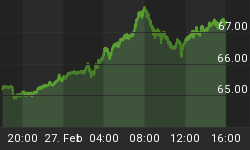Enthusiasm among drivers is lacking about autonomous vehicles and even electric cars, J.D. Power’s latest Mobility Confidence Index has revealed.
The results of the survey would be surprising—and bordering on shocking--for the proponents of EVs and all the headline space these vehicles are getting, with analyst forecasts for their adoption overwhelmingly optimistic. Unlike them, consumers are not as optimistic about the future of plug-in cars and self-driving vehicles.
According to the survey, electric cars scored a mobility confidence index reading of 55 on a scale of 100. Self-driving cars scored even lower, at 36 points, which would hardly be a surprise since this technology has yet to mature, and developing trust in it would be a long process.
“Out of the box, these scores are not encouraging,” said J.D. Power’s executive director of Driver Interaction & Human Machine Interface Research. “As automakers head down the developmental road to self-driving vehicles and greater electrification, it’s important to know if consumers are on the same road—and headed in the same direction. That doesn’t seem to be the case right now. Manufacturers need to learn where consumers are in terms of comprehending and accepting new mobility technologies—and what needs to be done.”
Indeed, the results are worrying, especially for EVs which have been hailed as the drivers of a transport revolution. According to the survey, there are still a lot of people who wouldn’t buy an EV: just 39 percent said they would buy one. Even more people don’t believe EVs are as reliable as ICE cars: 51 percent. One thing the majority of respondents in the survey were positive about in EVs was their beneficial effect on the environment.
Among the top problems noted by respondents were the length of time it takes an EV to charge and the length of its range. According to the majority, the former needs to be shortened and the latter extended before they would consider buying an electric vehicle.
By Irina Slav for Oilprice.com
















